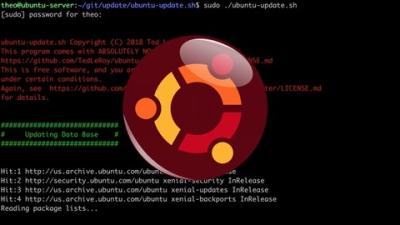Description
Ubuntu Linux is consistently among the top 5 Linux Desktop and Server distributions. Learn the basics of the Linux Command Line and Server Administration in this course. You will learn enough to comfortably manage your own server by the end of this course.
Updated for Ubuntu 20.04, the latest Long Term Support (LTS) version.
Once you understand Linux, you understand the operating system that powers much of the Internet. This beginner level course will take you from knowing nothing about Linux to competency.
You do NOT have to have an extra computer to load Linux on to take this course.
As with all Udemy courses:
You have a 30 day, no questions asked, money back guarantee if you’re not fully satisfied with the course.
You have lifetime full access to the course and all updates and additions.
Ubuntu’s a great place to start learning Linux. It’s a well maintained, full featured, well documented and supported, free operating system.
Unleash the power of Ubuntu’s command line tools.
By the end of this course, you’ll know:
What Linux is
What Distributions or Distro’s are
When Ubuntu’s a fit and when it’s not
How to install Ubuntu Server
Installation on VirtualBox is included in the course
VirtualBox is free software that lets you run other Operating Systems with an application on your computer
There’s no need to find or buy an old computer to run Ubuntu on
VirtualBox lets you try Ubuntu or any other Operating System without risk
How to keep your system up to date
What Shell’s are
How to navigate your system at the command line using the BASH shell
Essential BASH commands
Manipulating files with BASH
How to manage packages with apt package manager
How to add and remove users from the system
Managing Files
File permissions
Changing permissions
The letter vs. numeric method of setting permissions
How to keep contents secret
Changing ownership on a file
A simple way to keep versions of system files
Managing Users
Adding and removing users (two methods)
Giving a user sudo (run as root) permissions
Adding a user to groups
Removing users
Cleaning up after removal
Managing Groups
How groups are used in Linux
Primary and secondary groups
Changing a users primary group
Adding a user to a secondary group
Changing the group that owns a file
Editing Text Files
Using Vi Improved – vim
Using nano
Saving copies of originals for system files
Help and support
What manual, or ‘man’ pages are and how to use them
The Linux –help system and how it can help you
Ubuntu online documentation
Ubuntu forums
Linux File System Structure
Filesystem Overview
Where to Put Things You Install
Configuring Remote Access with Secure Shell (SSH)
Remote Access Overview
Preparing Your Server
Connecting with SSH
Windows – PuTTY
Key Based Authentication – LInux and MAC
Key Based Authentication – Windows
Saving Your Key (Pageant for Windows
Editing sshd_config
Moving Files to and From Your Server
Using scp to move files
Using wget to download from the Internet
Using curl to download or copy a whole site
Managing Your Server
Using ps to see what’s running
Checking system performance, top, htop, nmon
Checking drive space, df
Checking memory usage, free
Scheduling tasks, cron
Securing Your Server
Disabling unneeded services
Stopping bad guys with Fail2ban
Enabling your firewall (ufw)
Creating a Web Server With nginx and Securing nginx
Installing and configuring nginx
Adding encryption with SSL/TLS
Securing nginx’s configuration file
Blocking malicious activity with Fail2ban
Deploying and Securing WordPress on Apache
Install the LAMP stack
Install WordPress
Secure WordPress
All that and more will have you walking away from the course at the end with the knowledge you need to be comfortable with Linux at home or at work.
Along with System Administrators wanting to integrate Linux where it is appropriate within their environments, this course has proven useful to developers learning or working with Python, JavaScript, Web Development (HTML, CSS), Machine Learning, Java, MySQL, WordPress, Node.js, Amazon AWS, PHP, Docker, and to aspiring Ethical Hackers, Cyber Security, and DevOps to name a few.

